Below are full biographies of speakers for Georgetown University’s “The Druze in their Adopted Lands” conference held on April 14th and April 15th, 2023. Please visit the conference page to register.
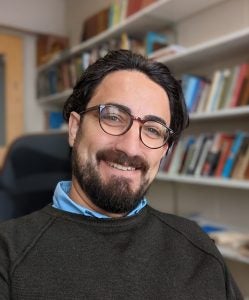
Fikri Çiçek
Fikri Cicek is a Ph.D. candidate in history at the University of Minnesota, specializing in the early modern Middle East from transnational and interconnected perspectives. His research examines how health, religious, political, and family crises generated transregional connections, mobility, and diffusions of knowledge between the early modern Middle East and the wider world. By traversing the cross-cultural life stories of the various members of a Levantine Druze family—The House of Ma’n— in Ottoman Syria, Renaissance Italy, Kurdistan, and India—his research offers new ways of rethinking the experience of religious minorities, women, and enslaved people in times of crisis, as well as their role, through transnational encounters, as knowledge creators.
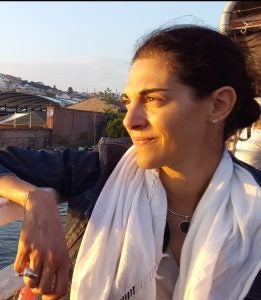
Dima de Clerck
Dr Dima de Clerck holds a Master degree in Middle Eastern and Arab World studies from the Institut des Langues et Civilisations Orientales (INALCO) and a Doctorate in Contemporary History from the Sorbonne University. Her thesis focused on the Druze and Christian Relations Put to the Test of Wars and Reconciliations, of Representations and Memories. She has authored numerous scientific articles, co-authored Le Liban en guerre (1975-1990) and co-edited and published Liban: la guerre de 1975-1990 dans le rétroviseur and 1860, History and Memory of a conflict. A fellow researcher at the Near East French Institute, a consultant for Act for the Disappeared, she lectures at Universities in France and in Lebanon, such as the Paris 1 Panthéon-Sorbonne University, Science Po Grenoble, the American University of Beirut, the Lebanese American University and the Saint-Joseph University.
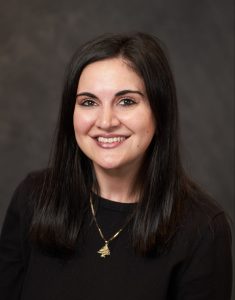
Natalie El-Eid
Natalie G. El-Eid (she/her) is a Ph.D. Candidate in English at Syracuse University. A first-generation Lebanese American Druze woman, Natalie works and transforms from within a U.S. landscape, but identifies Beirut as her heart and home. Natalie received her undergraduate education in Psychology at the American University of Beirut and Central Connecticut State University. She completed her master’s degree in English at SUNY Cortland. Her research interests and work center on the transnational Arab world, memory, trauma, gender, and sexuality. Natalie’s dissertation, titled “Transnational Druze and Reincarnation: Remembering, Recording, and Reconnecting,” works to both expand and reshape critical scholarship across literary, trauma, and memory studies by centering on the oft-invisibilized transnational Druze, an esoteric ethnoreligious group within origins in the Arab world. Her project works interdisciplinarily across literature, film, online culture, and self-conducted oral interviews in collaboration with Druze peoples in Lebanon and the U.S. Natalie has previously written a chapter on women in the United Arab Emirates for Women’s Lives Around the World: A Global Encyclopedia (2018). She also has an article published in Mashriq and Mahjar, titled “Visual Hakawatis: Drawing Resistance in Leila Abdelrazaq’s Baddawi and Malaka Gharib’s I Was Their American Dream” (2022). Natalie also is involved in multiple activist groups and organizations on local, national, and transnational levels. Her research and life work are centered on affirmation, transformation, and coalition.
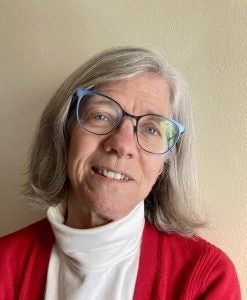
Ellen Fleischmann
Ellen Fleischmann is Professor Emerita of History at the University of Dayton. Her research interests are women and gender in the Middle East, Palestinian history, the history of female education in the Middle East, women’s movements in the Middle East, and the cultural, social, and religious exchange between Arabs and Americans. She is the author of The Nation and Its ‘New’ Women: the Palestinian Women’s Movement, 1920-1948 (University of California Press, 2003) and co-editor of and contributor to Global Health and Humanitarianism: Knowledge Exchanges in a Historical, Transnational Perspective (Kristiansand: Norway, 2013). She has published numerous articles on women and gender in the Middle East, and American missionaries’ work with women in Lebanon. She is currently working on a book project about Dr. Nejla Abu-Izzeddin.
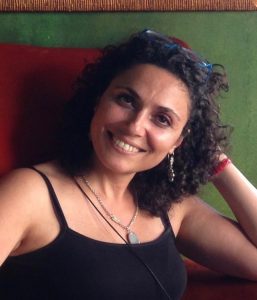
Benan Grams
Dr. Benan Grams is a social historian of disease and medicine in the Modern Middle East. Her research focuses on the intersectionality of the history of disease, public health, environmental history and urbanization in the late nineteenth and early twentieth centuries. Her dissertation, “Damascus in the Time of Cholera: The Social Impact of Epidemics on the Transformation of Ottoman Damascus, 1848-1918,” examines the impact of cholera epidemics, the nineteenth century’s most feared disease, on the history of Damascus and on the lives of its inhabitants. During her fellowship, Dr. Grams is expanding on her dissertation, utilizing research gathered at the Ottoman Archives to examine how the cholera epidemic affected the Druze community in Syria and its relationship with the Ottoman government. Her investigation will contribute to our understanding of the impact of short-term crises like epidemics on various communities and marginalized groups across Syrian society. Dr. Grams earned her PhD in history and an MA in Arab Studies from Georgetown University. She also holds an MA in Economic Development and International Studies from Friedrich Alexander University Erlangen-Germany, and a BA in international business from Georg-Simon-Ohm, Nuremberg-Germany.
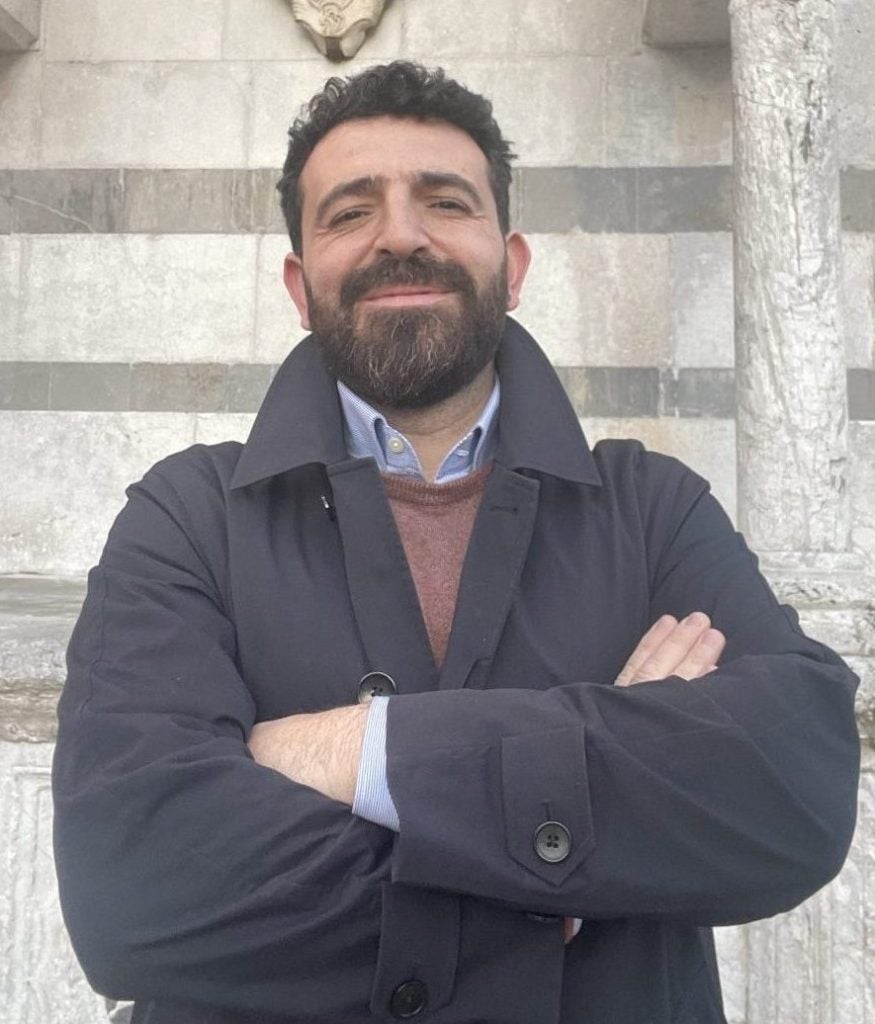
Charles Al Hayek
Charles Al Hayek is a Lebanese public historian, instructor, cultural heritage expert, and consultant. He is the founder of “Heritage and Roots”, a platform dedicated to promoting historical understanding and historical thinking, as well as engaging the broader public with Lebanese and Middle Eastern history and cultural heritage. He works on educational projects related to peacebuilding through cultural heritage in areas that have been affected by sectarian violence in Lebanon. He is a trainer in the cultural emergency response program, and a consultant for the BeMa (Beirut Museum of Modern Arts), and other cultural bodies in Lebanon. al-Hayek was a history instructor (2002-2020) and vice principal at College Saint Joseph d’Antoura (2014-2020), and resident writer at the Centre of Arts and Humanities, American University of Beirut (AUB) (2020-2021) where he worked on writing and producing a docuseries: “Lebanon’s centennial: a hundred years of fact and fiction.” under the supervision of the late professor Abded el-Rahim Abu Husayn. He is currently working on launching the first Lebanese History Podcast, online courses on Lebanese and Levantine History, and a short docuseries with the Arab Though Foundation called “The Arab World in 30 Monuments”. He also has his TV show on LBCI “Lebanon in a Story”.
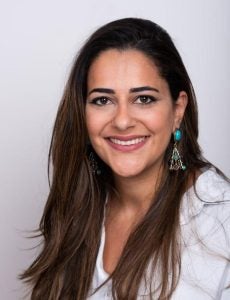
Lama Karame
Lama Karamé is a DPhil Candidate in Socio-Legal Studies at the University of Oxford and an adjunct faculty at the Department of Criminology, Law, and Society at George Mason University. Her doctoral research explores the socio-legal conceptualization of childhood through an ethnographic study of juvenile courts in Lebanon. Lama is also a lawyer at the Beirut Bar Association with extensive experience in human rights litigation and legal advocacy. Formerly, she directed the strategic litigation program at the Beirut-based regional NGO, The Legal Agenda. Her research broadly focuses on issues at the intersection of law and society. She has published numerous studies, policy papers and articles on a wide range of topics, including legal mobilization and reform, socio-economic justice, juvenile justice, judicial decision-making, sentencing trends, and family law and religious courts. She holds an LL.B. in public law from the Saint Joseph University of Beirut, a bachelor’s degree in sociology from the Lebanese University, and an LL.M. in law, culture, and society from SOAS, University of London. Prior to completing her masters, Lama was a visiting scholar at the Columbia Law School in New York, her research focused on the role of legal professions in promoting social justice.
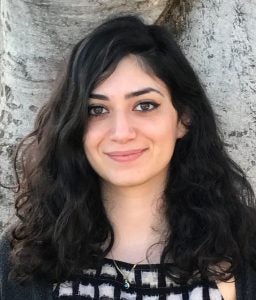
Deena Naime
Deena Ziad Naime is a PhD Candidate in the department of American Studies and Ethnicity at the University of Southern California. Her dissertation is tentatively titled Sobhiyat w Zyarat: Generations of Druze Feminism Through Shared Spaces, Emotional Intimacy, and Care (Work). Her project centers women’s spaces fostered in Druze communities in the Levant and the North American diaspora in order to theorize the concept of Druze feminism – as well as the cultivation of spaces of intimacy and care among women as a potentially radical intervention in feminist research methodology. Naime also holds a BA in Women’s, Gender and Sexuality Studies and Middle Eastern Studies from California State University, Long Beach and MA in Women’s Studies from San Diego State University where she wrote her thesis on Arab American women’s disruption of mainstream “self-care” vis-á-vis U.S. neoliberal capitalism. She is invested in using academia as a site to co-create spaces both in- and outside of higher education through radical approaches of listening, feeling, and engaging – inspired by the Druze feminist praxis she theorizes.
Graham Pitts
Graham Auman Pitts is a historian of food, famine, and environmental history. His work focuses on Lebanon and the modern Middle East but the major themes of his research: capitalism, disease, foodways, and migration demand a global framing. Among his recent publications (as co-editor and co-author) is Making Levantine Cuisine: Modern Foodways of the Eastern Mediterranean (UT Press, 2021), a book project that he developed as a collaboration between scholars, food writers, and chefs. Pitts’ current book manuscript concerns the famine that struck Lebanon during World War I. Before coming to the University of Mississippi, Pitts held faculty positions at North Carolina State, Georgetown, and George Washington universities. For two years, he was honored to be the American Druze Foundation fellow at the Center for Contemporary Arab Studies. He completed his PhD in history at Georgetown University.
Michael Provence
Michael Provence is Professor, Department of History, University of California, San Diego. He earned a PhD in Modern Middle Eastern History from the University of Chicago. He was a visiting Assistant Professor in the AUB Department of History and Archeology in 2005-2006 and has visited often since then. Provence also lived and studied in Syria, Germany, and France. He is the author of the books, The Last Ottoman Generation, and The Great Syrian Revolt, and many articles on the late Ottoman and colonial Middle East of the early 20th century. Both books have been translated and widely reviewed in Arabic and Turkish.
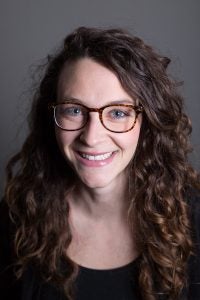
Lindsey Pullum
Lindsey Pullum is a cultural anthropologist who specializes in cultural expressions of ethnic and religious differences in Middle Eastern popular culture. Her dissertation, Faithful/Traitor: Violence, Nationalism, and Performances of Druze Belonging, was awarded the annual Ben Halpern Best Dissertation in Israel Studies from the Association of Israel studies. Her book examines how Israeli Arab-Druze use violence to communicate a distinct Israeli identity that integrates Jewish history and Arab tradition. She holds a PhD in Anthropology from Indiana University (Bloomington). She was previously an Instructor of Anthropology and Communication at The Modern College of Design in Dayton, Ohio, teaching courses in Organizational Communication and Design Thinking/Design Anthropology. She was the 2021-2022 American Druze Foundation Research Fellow at Georgetown University.
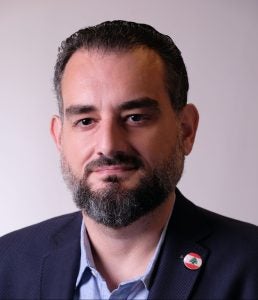
Makram Rabah
Makram Rabah is a graduate of the American University with a BA’03, MA’07 in History with a minor in Political Studies. Rabah also holds a PhD in History from Georgetown University (2016). Rabah, who has a law degree from the Lebanese University, is a lecturer of History at the American University of Beirut.
Rabah’s research interests include the modern Middle East, the modern history of Lebanon, the Lebanese Civil War and the role of memory in the reconciliation process. He is also the author of a groundbreaking book entitled, A Campus at War: Student Politics at the American University of Beirut 1967-1975 (Nelson Publications, 2009). His recent book Conflict on Mount Lebanon: The Druze, the Maronites and Collective Memory (Edinburgh University Press) covers collective identities and the Lebanese Civil War.
Rabah is also a regular contributor to a number of regional and international publications on Middle Eastern political affairs.
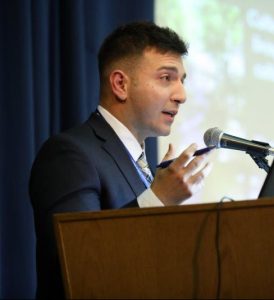
Chad Radwan
Dr. Radwan is an applied anthropologist who conducts qualitative research on a variety of topics in anthropology, public health, and the health sciences. Central to his research on the Druze, Dr. Radwan has largely focused on cultural heritage preservation among Druze communities in both the diaspora and countries of origin. His seminal study on the Druze entailed qualitative interviews with over 100 participants in Lebanon, highlighting the role of historical and religious knowledge on contemporary Druze identity. He’s published on this research in the journal Economic Anthropology and has presented at numerous conferences, including the Druze Millennial Conference hosted at the American University of Beirut in 2018. Recent studies in the health sciences on which he’s been involved focus on understanding contributing factors to suicide and the effectiveness of suicide prevention messages, identifying fall risks related to the built environment and safe patient handling practices, assessing the effectiveness of interventions that address sleep apnea therapies, and formulating strategies to ameliorate homeless provider burnout, among others. Upcoming projects continue to improve policies and programs that focus on retaining VA staff who work in stressful environments (e.g., suicide prevention coordinators, case managers, social workers etc.). Dr. Radwan also facilitates the James A. Haley Veteran’s Engagement Group (VEG), whose members are dedicated to providing critical and thoughtful feedback to ensure that research projects incorporate the perspectives of veterans throughout all stages of their process. A sample of Dr. Radwan’s work on Druze in particular can be referenced via the link below while more recent publications on veteran-centered topics can be accessed via Google Scholar.
Malek Rasamny
Malek Rasamny (M2, EHESS) is a documentary filmmaker, researcher and social anthropologist. Malek Rasamny, along with collaborator Matt Peterson’s, previous multimedia research project The Native and the Refugee explored the juxtaposition of Palestinian refugee camps in the Middle East and American Indian Reservations in the United States and resulted in the feature film Spaces of Exception (2019) and the anthology The Mohawk Warrior Society: A Handbook on Sovereignty and Survival (2022, PM) completed alongside co-editors Philip Blouin, Matt Peterson and Kahentinetha Rotiskarewake. His current proposed doctoral research concerns reincarnation amongst the Druze community in Lebanon investigating the role of reincarnation in contemporary discourse about the Druze religion, its presence as a popular phenomenon within the community and finally the ways it may work as a form of collective memory in relation to the country’s civil war (1975-1991). Malek’s words, writings and videos have been featured in contemporary art journals, news outlets and academic publications such as the journal Contemporary Arab Affairs and the book Interactive Documentary: Decolonizing Practice-Based Research (2022, Routledge).